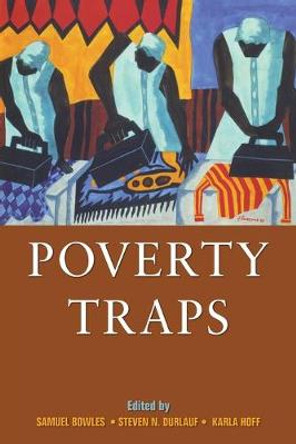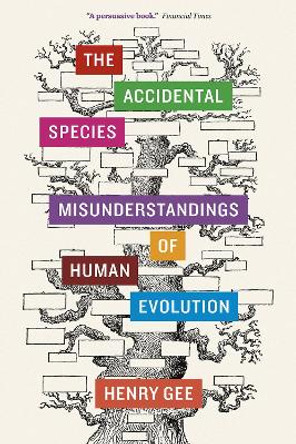Description
About the Author
Samuel Bowles heads the Behavioral Sciences Program at the Santa Fe Institute and teaches economics at the University of Siena. Herbert Gintis holds faculty positions at the Santa Fe Institute, Central European University, and the University of Siena.
Reviews
"The achievement of Bowles and Gintis is to have put together from the many disparate sources of evidence a story as plausible as any we're likely to get in the present state of behavioural sciences of how human beings came to be as co-operative as they are."--W.G. Runciman, London Review of Books "In A Cooperative Species, economists Samuel Bowles and Herbert Gintis update their ideas on the evolutionary origins of altruism. Containing new data and analysis, their book is a sustained and detailed argument for how genes and culture have together shaped our ability to cooperate... By presenting clear models that are tied tightly to empirically derived parameters, Bowles and Gintis encourage much-needed debate on the origins of human cooperation."--Peter Richerson, Nature "An outstanding book that presents an important contribution and quite simply raises the scientific standard associated with the difficult and contentious problem of how human altruism evolved."--Charles Efferson, Economic Journal "A Cooperative Species: Human Reciprocity and Its Evolution states a clearly articulated gene-culture coevolution explanation for why we are a cooperative species. It is a read that will stretch readers' minds a bit, and I think it is an eminently valuable read... I await with eagerness the next time Bowles and Gintis are out cooperating again."--Jonathan D. Springer, PsycCRITIQUES "[T]he authors' systematic and mathematical approach will appeal to any reader seriously interested in learning about alternative theories of adaptive altruism, and their treatment of cultural inheritance using population-genetic models is first-rate. Although this book will by no means settle the debate surrounding the evolutionary origin of altruism, it is a worthy addition and is well worth reading."--P. William Hughes, Journal of Economic Issues "Bowles and Gintis are clearly not short of ideas. The attention they draw to the role of conflict and coordinated punishment in the evolution of our cooperative and reciprocal species makes the book very much worth reading. Their focus on the evolution of human nature also paints a much richer picture of our behavior than traditional economics tends to do."--Journal of Economic Literature "Bowles and Gintis are not the first to claim that competition, conflict, and war between human groups is the foundation of cooperation and of society. However, their integration of this insight into evolutionary game theory stands to increase the accessibility of this powerful idea to a large number of scholars working in a dominant theoretical perspective that spans the social and biological sciences. This is one reason why I recommend their new book A Cooperative Species: Human Reciprocity and Its Evolution."--Noah Mark, Journal of Artificial Societies and Social Simulation "This book makes a strong case for returning as a discipline to this vexed theme. I can only hope we do so with the analytical ingenuity and empirical humility that Bowles and Gintis display."--Jacob G. Foster, American Journal of Sociology "Cooperative Species: Human Reciprocity and Its Evolution should be of interest to individuals across multiple disciplines. The book provides a compelling argument supported by multiple kinds of theoretical and empirical evidence. Although the book does use some technical language and examples in places, the explanation is sufficiently clear to make the main ideas and arguments of the book accessible to individuals who were not previously familiar with these technicalities."--Christopher M. Caldwell, Metapsychology Online "[This book] makes important contributions to our understanding of the nature and function of emotions in politics, including the evolution of emotion and cognition and their linkages to democratic governance... [It] should become [an] important resource for students of politics who have the requisite background in the behavioral sciences and wish to develop an integrated, life science perspective in their own work."--Michael S. Latner, Politics and the Life Sciences
Book Information
ISBN 9780691158167
Author Samuel Bowles
Format Paperback
Page Count 280
Imprint Princeton University Press
Publisher Princeton University Press
Weight(grams) 482g





